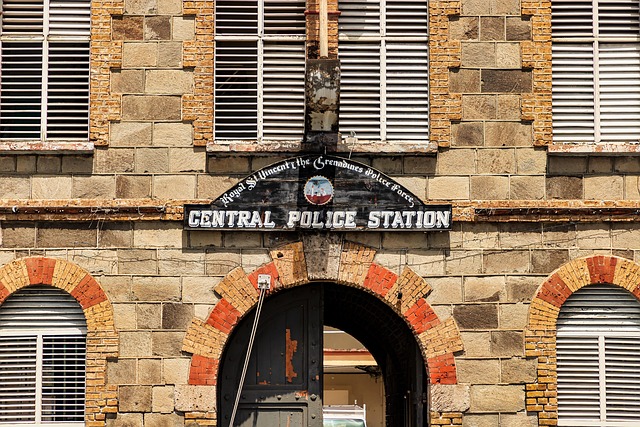Criminal law enforcement involves a collaborative effort between police, prosecutors, defense attorneys, and judges to maintain order and seek justice. Breach of contract cases in civil law, such as delayed construction projects or missed software development deadlines, can lead to significant financial losses and legal actions like damages or specific performance. Unlike criminal law focused on punishment, civil law prioritizes compensatory and restorative justice, with successful resolution rates highlighting its fairness in addressing breach of contract disputes.
Criminal law enforcement is a complex web of roles and responsibilities designed to maintain societal order and justice. From investigating crimes to prosecuting offenders, every action is crucial in navigating the intricate landscape of criminal procedure. This article explores these nuances through three key lenses: understanding criminal law enforcement’s core functions, delving into practical breach of contract cases, and examining the civil law perspective on resolving disputes. Additionally, we provide insightful breach of contract case examples in civil law to enhance comprehension.
- Understanding Criminal Law Enforcement: Roles and Responsibilities
- Breach of Contract in Practice: Real-World Case Examples
- The Civil Law Perspective: Resolving Contract Disputes
Understanding Criminal Law Enforcement: Roles and Responsibilities

Criminal law enforcement involves a complex web of roles and responsibilities designed to maintain societal order and ensure justice. At its core, this system comprises police officers, prosecutors, defense attorneys, and judges, each playing a crucial part in all stages of the investigative and enforcement process. Police officers are often the first line of defence, responsible for responding to calls, conducting investigations, and making arrests based on probable cause. They gather evidence, interview witnesses, and ensure the safe transportation of suspects.
Prosecutors, acting as the voice of the state, review the evidence gathered by law enforcement and decide whether charges should be filed. Defense attorneys, on the other hand, represent the accused, challenging the prosecution’s case and ensuring that their clients’ rights are protected. Judges oversee trials, interpret laws, and deliver verdicts based on the presented evidence. These professionals work together to uphold the law, resolve disputes, and provide closure for victims—all while upholding the principles of fairness and justice, even in complex cases like breach of contract matters that occasionally intersect with civil law across the country.
Breach of Contract in Practice: Real-World Case Examples

In civil law, breach of contract cases are prevalent and often serve as crucial precedents. Real-world examples illustrate how contractual obligations, when violated, can lead to significant legal repercussions. For instance, a construction company might enter into an agreement with a city to build a bridge, promising to complete the project within a specified timeframe and budget. If the company fails to meet these obligations, causing substantial delays and financial losses for the city, it constitutes a clear breach of contract. As a result, the city may seek compensation through damages or even a complete dismissal of all charges against the contractor.
Another case could involve a software developer promising to deliver a custom application to a client within three months. If, due to poor project management and communication, the developer fails to meet this deadline, causing the client to miss important business opportunities, it is considered a breach of contract. This may lead to legal action where the client seeks damages or specific performance, ensuring the contractor fulfills their obligations. These examples highlight how breach of contract cases in civil law can impact not just corporate and individual clients but also shape the relationships within philanthropic and political communities.
The Civil Law Perspective: Resolving Contract Disputes

In civil law jurisdictions, the resolution of contract disputes takes a different approach compared to criminal law enforcement. When a breach of contract occurs—a scenario where one party fails to fulfill their obligations as outlined in an agreement—the focus shifts towards compensatory and restorative justice. Unlike criminal cases that aim to punish offenders, civil law seeks to resolve conflicts and provide remedies to aggrieved parties. For instance, if a company contracts with a supplier but the supplier consistently delivers substandard goods, the affected business may file a lawsuit seeking damages for the financial losses incurred.
Breach of contract case examples in civil law often involve complex negotiations and, when settlement fails, jury trials. The unique aspect of these cases is that they can impact both corporate and individual clients, with each party presenting their arguments and evidence to demonstrate the breach and subsequent harm. An unprecedented track record of successful resolutions has been achieved through this process, showcasing the effectiveness of civil law in addressing contractual disputes and providing a fair outcome for all involved parties.
In exploring criminal law enforcement, understanding the intricate roles and responsibilities is key. This article has delved into these aspects, shedding light on how different legal systems navigate breach of contract cases, particularly highlighting real-world examples in civil law. By examining these scenarios, we see the practical application of legal principles in resolving disputes, with a focus on breach of contract case examples in civil law. This comprehensive view underscores the importance of specialized knowledge and adaptive strategies in both criminal and civil contexts.






